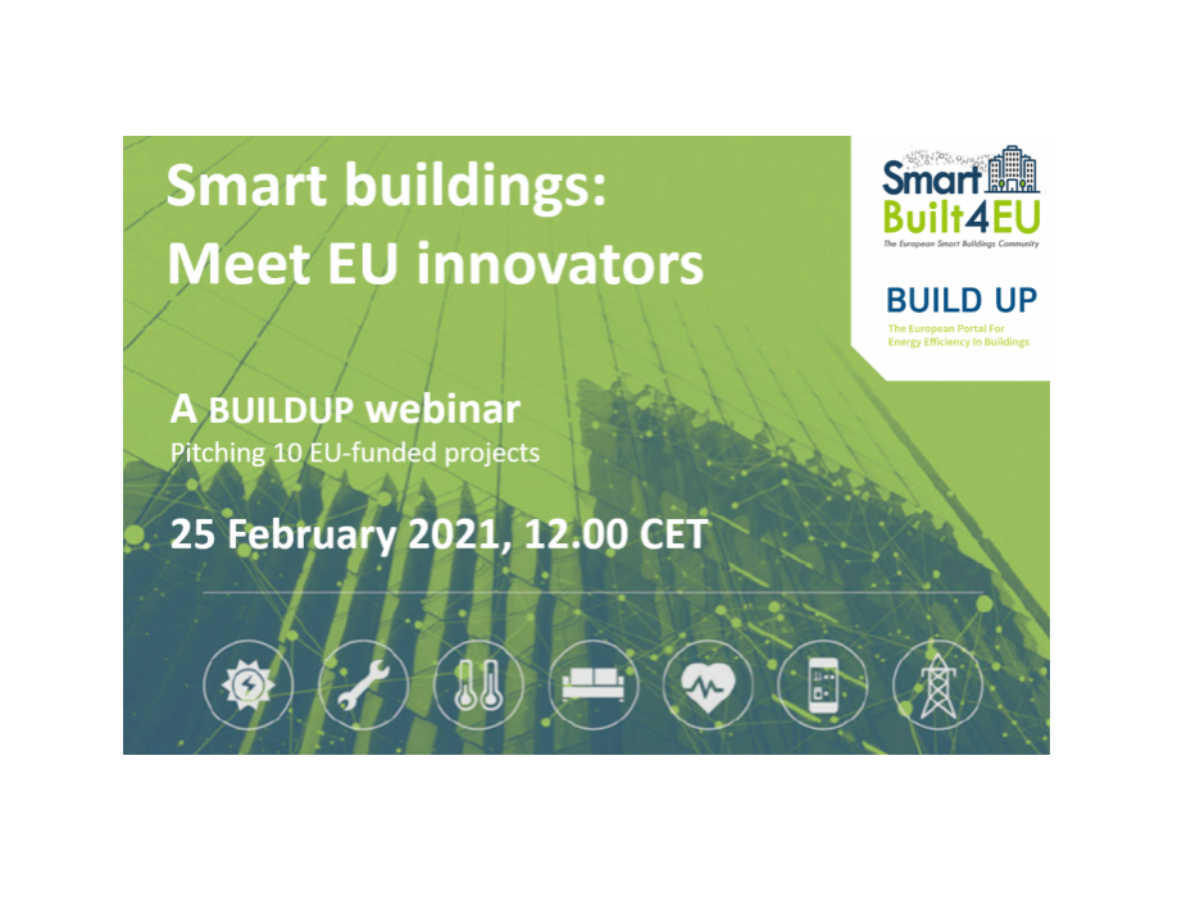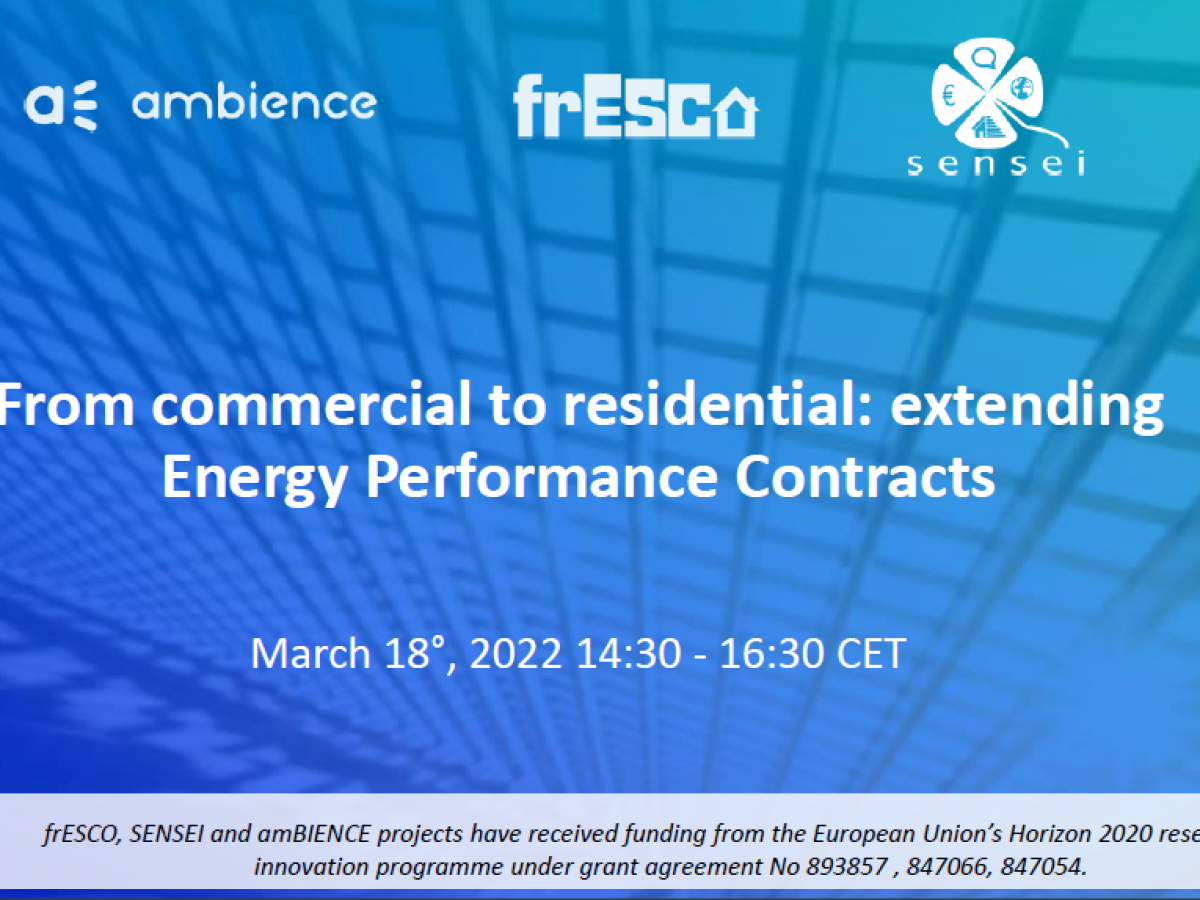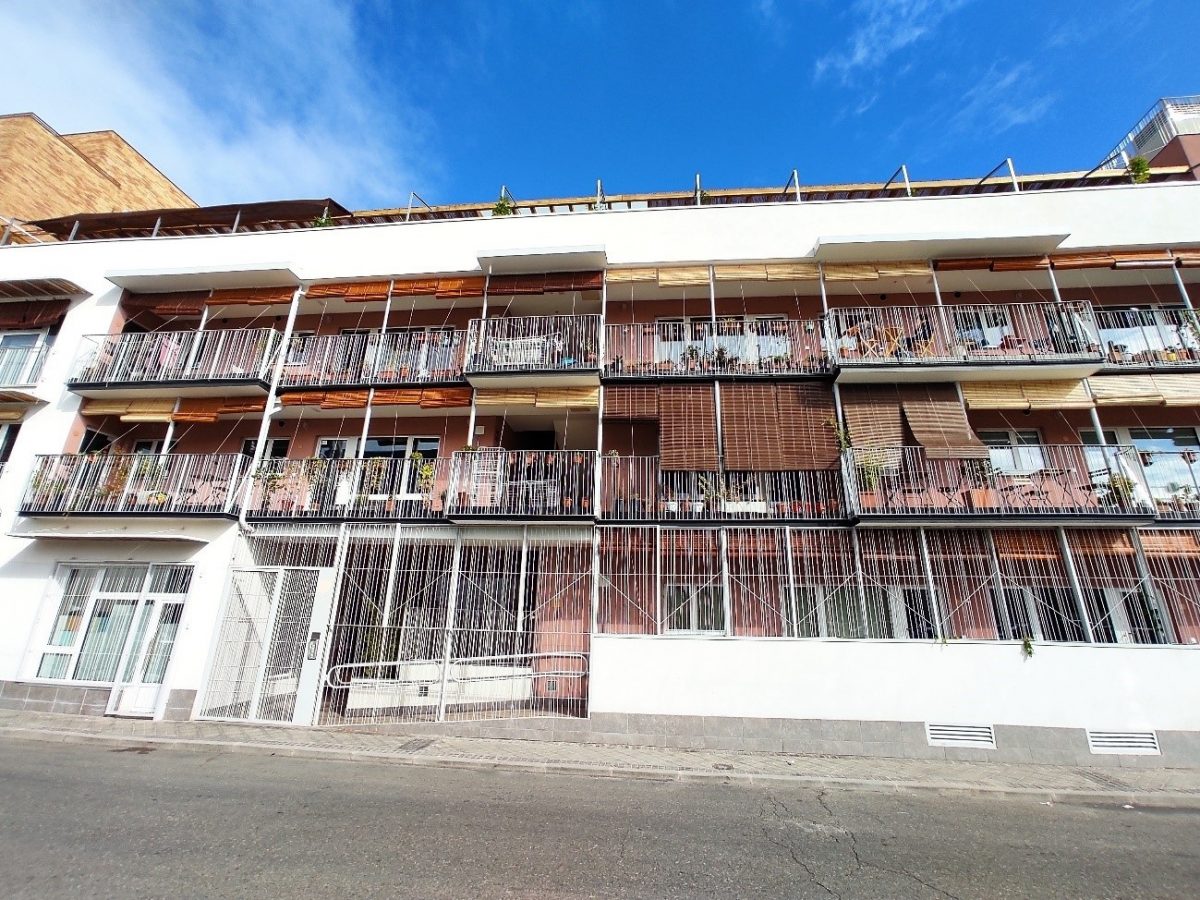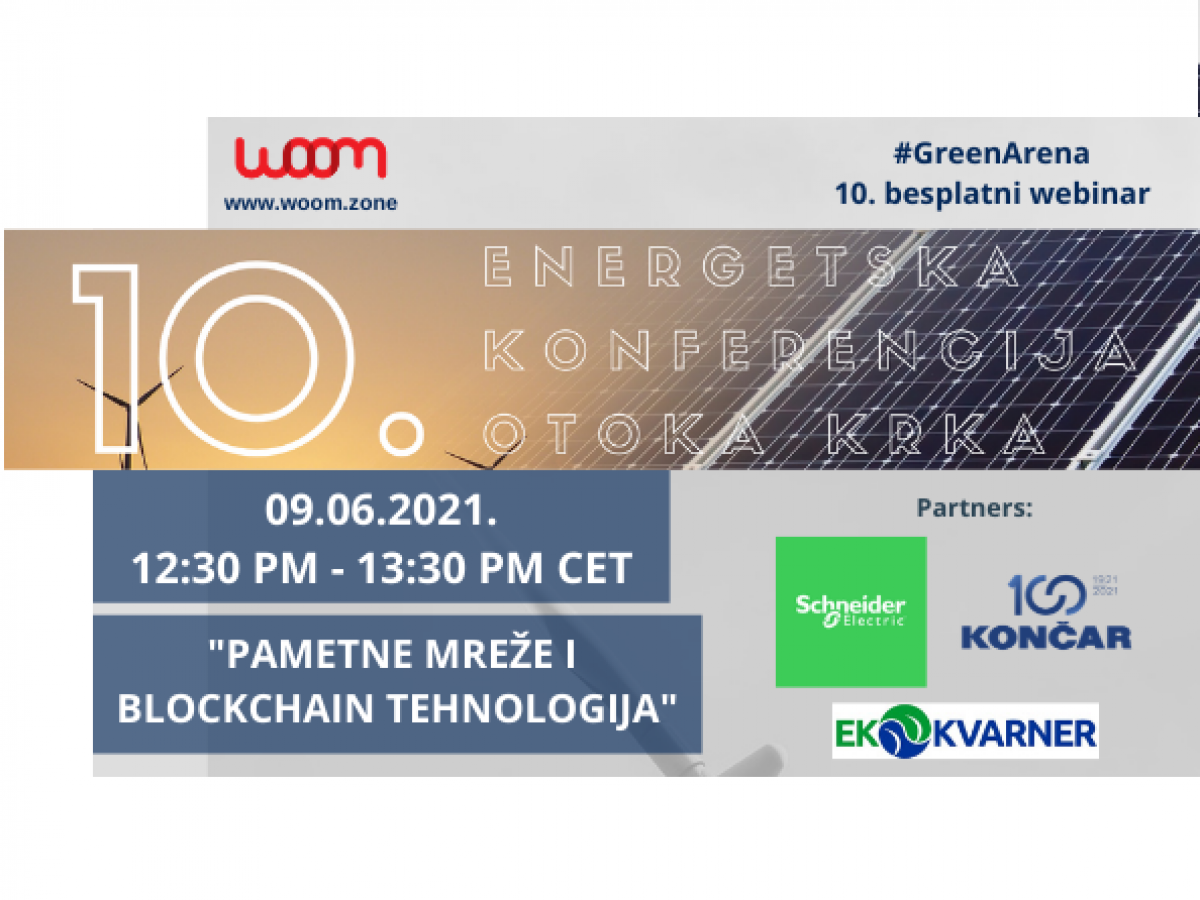THE EUROPEAN INNOVATORS OF THE RESIDENTIAL SECTOR
The next steps towards Smart Buildings conversion
A recent webinar shows once more the importance of transitioning towards energy-efficient and smart-grid ready buildings.
Never before we have spent so much time in our apartments as during the Covid-19 pandemic. This may has led to the realization of how ineffective certain aspects of the environment in which we live are. Energy consumption has increased exponentially and our dwellings are not able to cope with their demand independently, insulation is not optimal for maintaining internal temperatures, the lighting quality of the apartments in which we are spending the whole day is not as suitable as we thought, the quality of the air is an important factor when spending 24 hours in a building and numerous other factors have probably emerged during the quarantine we are experiencing, leading us to seriously take into consideration possible retrofitting and renovation interventions essential to increase the comfort and efficiency of our apartments.
Several EU funded projects are currently developing and testing solutions that will push further the smart readiness of buildings and their interactions with the environment. They address the optimization of energy consumption and renewable generation, the provision of flexibility services to the power network, improved wellbeing and new services to occupants, as well as new business opportunities and models.
All these themes represent the focus of frESCO which is looking for new keys for financing renovation actions and energy efficiency improvements in buildings under the Pay for Performance principle. In this context, frESCO aims to engage with ESCOs and aggregators and enable the deployment of innovative business models on the basis of novel integrated energy service bundles that properly combine and remunerate local flexibility for optimizing local energy performance both in the form of energy efficiency and demand side management.
The new multi-services packages will combine building retrofitting and investments for the installation of smart equipment together with extended offerings for the installation of distributed generation and battery units, energy efficiency measures to boost behavioural transformation and maximize the building automation, flexibility services for the grid interaction and non-energy services to increase the comfort, the indoor air quality and the security.
The increasing penetration of smart solutions for residential dwellings and the generation of huge data streams that can facilitate better knowledge of the demand side, the drastic reduction of the costs for on-site generation and storage, the proliferation of self-consumption models and energy communities, point the way towards the definition and deployment on innovative energy services that can transform small residential consumers as active energy actors and equal participants in the energy markets.
For this reason, frESCO was selected as one of the perfect candidates for the webinar “Smart buildings: meet EU innovators” virtually hosted by Build Up EU and held the 25th of February 2021. The event was organized by the SmartBuilt4EU project (coordinated by the EUROPEAN CONSTRUCTION, BUILT ENVIRONMENT AND ENERGY EFFICIENT BUILDINGS TECHNOLOGY PLATFORM – ECTP) and moderated by Karine Laffont-Eloire from DOWEL INNOVATION.
The webinar gave the opportunity to introduce frESCO which was presented by the project coordinator Juan Aranda and other 10 related EU funded projects that shown their key innovations:
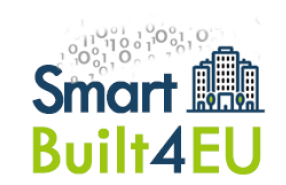
Alexis David (ECTP), as the project coordinator, gave an introduction of the SmartBuilt4EU project, that aims to support the innovation ecosystem in the smart building value chain through concrete networking and communication actions.

Sander Smit (R2M SOLUTION) introduced the DR-BOB project that aims to demonstrate the economic and environmental benefits of a Demand Response Energy Management solution for single or blocks of buildings.

Ulrich Filippi Oberegger (EURAC RESEARCH) showcased the BUILTHUB project that will develop an organised and inclusive data collection method and an easy-to-access-and-use dynamic building datahub in the form of a structured web-based platform.
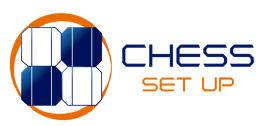
Victor Martinez del Rey (MUNICIPALITY OF SANT CUGAT, SPAIN) introduced the CHESS SETUP project which objective is to design, implement and promote a reliable, efficient and profitable system able to supply heating and hot water in buildings mainly from renewable sources.
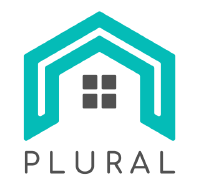
Maria Founti (NATIONAL TECHNICAL UNIVERSITY OF ATHENS) gave an introduction of the PLURAL project that wants to design, develop and demonstrate innovative solutions for deep building renovation as well as deliver optimal practice and deep renovation examples.
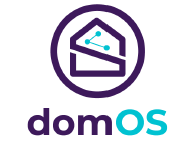
Dominique Gabioud (HES-SO) showcased the domOS project that is working on developing methods and processes to control and monitor existing energy appliances in existing buildings, fulfilling privacy and cyber security requirements.
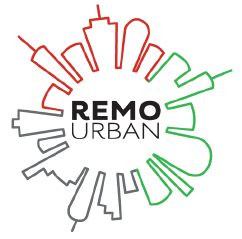
Cristina de Torre (CARTIF) introduced the REMOURBAN that aims to develop and validate a sustainable urban regeneration model that leverages the convergence area of the energy, mobility and ICT sectors in order to accelerate the deployment of innovative technologies and economic solutions to significantly increase resource and energy efficiency, improve the sustainability of urban transport and drastically reduce greenhouse gas emissions in urban areas.
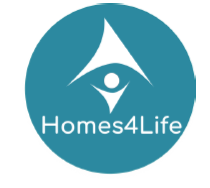
Silvia Urra (TECNALIA) introduced the Homes4Life project that will define a certification scheme for buildings based on a user-centric approach and according to the specificities of each country in order to ensure today’s homes support the changing needs and lifestyles.

Roberto Lollini (EURAC RESEARCH) presented the 4RinEU project, that wants to develop robust, reliable and cost-effective tailorable technology tools, strategies and business models for triggering deep renovation of existing residential buildings.
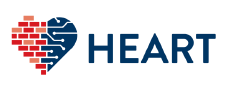
Finally, Claudio Del Pero (POLITECNICO DI MILANO) introduced the HEART project that wants to define multifunctional retrofit toolkit with different subcomponents that cooperate synergistically to transform an existing building into a Smart Building.
This webinar was just one of the numerous collaborations that will be realized between the sister projects and that will allow the creation of a network of experts who are working in the same sector ensuring a continuous exchange of information and suggestions. This was just the first of a series of 5 similar workshops that will be organized in the next 2 years during which the projects’ results, discoveries and lessons learnt will be presented.
If you missed the event, you can recover the recording at the following link: https://www.youtube.com/watch?v=PhYgKkKUSVw
FOR MORE INFORMATION
Juan Antonio Aranda Uson (CIRCE – Project Coordinator) jaaranda@fcirce.es
Leon Nielsen (CIRCE – Project Manager) lnielsen@fcirce.es
Iris Xhani (RINA Consulting – Dissemination and Communication Leader) iris.xhani@rina.org



